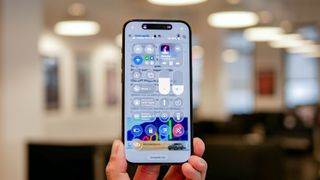Online Security
Explore Online Security
Latest about Online Security

Total phone hijack: New Hugging Face malware grants hackers full remote access
By Scott Younker last updated
Hugging Face may be hosting a fake app that is being used to send out Android malware.

After a brutal winter, will spring be warm? The Old Farmer's Almanac has the answer
By Camilla Sharman published
Warm spring on the horizon? The Old Farmer’s Almanac says yes, despite heavy winter snow. What does it mean for gardeners?

The TikTok ban saga appears to finally be over as a deal is completed
By George Phillips last updated
The US and ByteDance have completed a deal to sure up the future of TikTok, putting an end to the app's uncertain future.

Nike currently 'investigating a potential cybersecurity incident' as 1.4TB of data allegedly stolen
By Dave LeClair published
Nike is currently looking into the alleged breach, with the hacker group WorldLeaks claiming to have stolen 1.4TB of data.

We've tested the best antivirus software to protect your computer and these are the 6 we recommend
By Anthony Spadafora last updated
Protect your computer and smartphone right now without breaking the bank — one of the best antivirus apps is even free!

149 million logins and passwords exposed for Gmail, Facebook, Instagram and more — everything you need to know
By Anthony Spadafora last updated
Millions of logins and passwords have been leaked online after a hacker's database of stolen credentials was left unsecured without a password.

Popular password manager under attack by hackers — don’t fall for these fake backup emails
By Anthony Spadafora published
LastPass users should avoid emails recommending local vault backups, as a new holiday weekend phishing scam is currently targeting master passwords.

Fake Chrome extension ‘breaks’ your computer before it hits you with malware — how to stay safe
By Anthony Spadafora published
Chrome and Edge users are being targeted by a fake ad blocker extension that crashes their browsers and then infects their PCs with malware.
Here at Tom’s Guide our expert editors are committed to bringing you the best news, reviews and guides to help you stay informed and ahead of the curve!
 Club Benefits
Club Benefits







